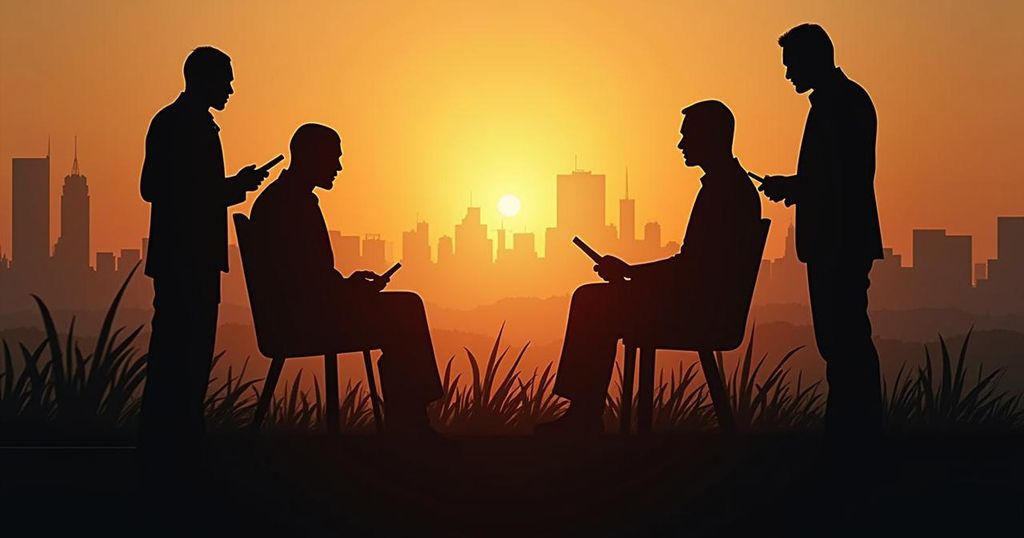Rwandan Foreign Minister Olivier Nduhungirehe stated that the Congolese Foreign Minister declined to sign a deal designed to alleviate the M23 conflict, which has displaced over 1.7 million people. The M23, a Tutsi-led group, has been involved in ongoing insurgency activities since 2022, with conflicts spiraling into accusations against Rwanda of providing support to the rebels. Negotiations aimed at resolving the conflict faced hurdles due to disagreements on implementation timelines for defense measures.
Olivier Nduhungirehe, Rwanda’s Foreign Minister, has publicly asserted that the Congolese Minister of Foreign Affairs declined to endorse a previously negotiated agreement intended to mitigate the ongoing M23 rebel conflict in eastern Democratic Republic of Congo, a situation that has led to the displacement of over 1.7 million individuals. The M23, which is predominantly Tutsi-led, has been actively engaged in an insurgency in the eastern region of the Democratic Republic of Congo since the year 2022, with allegations from Congo, the United Nations, and other entities that Rwanda has been providing support to the rebel group through the deployment of troops and artillery. Conversely, Rwanda has rebutted these claims, emphasizing that it has only undertaken defensive actions and accusing Congo of collaborating with the Hutu rebel group, the Democratic Forces for the Liberation of Rwanda (FDLR), which has reportedly targeted Tutsis within both nations. Previously, both nations participated in negotiations in late August aimed at alleviating the escalating conflict, which has significantly exacerbated the humanitarian crisis in the region and raised concerns about the potential for a broader geopolitical confrontation. Minister Nduhungirehe stated that during the discussions, which included the head of military intelligence from Congo, participants reached an agreement to neutralize the FDLR and subsequently ease Rwanda’s defensive measures. This deal was anticipated to be endorsed by ministers on September 14. Nduhungirehe remarked, “We were ready to sign … but the Congolese minister refused. She first commented on the report and then later, after consultation, she came back. She told us she was opposed to adopting the report.” He explained that the proposed plan outlined a sequential approach wherein actions against the FDLR would precede Rwanda’s reduction of its defensive measures; however, the Congolese Minister objected to the staged implementation of these measures, insisting on simultaneous actions. A representative from the Congolese government was not available immediately for comment regarding this dispute. Notably, both nations’ leaders, Felix Tshisekedi of Congo and Paul Kagame of Rwanda, were present at a summit for French-speaking nations in France where a trilateral meeting proposed by French President Emmanuel Macron did not materialize, resulting in the two leaders instead holding separate discussions with him.
The conflict involving the M23 rebel group in eastern Democratic Republic of Congo is a significant humanitarian crisis that dates back several years, deeply rooted in historical ethnic tensions and regional power dynamics. The M23 group emerged from earlier conflicts and is believed to have connections to the Tutsi minority, which has faced persecution in the region. The ongoing violence has resulted in not only large-scale displacement but also deteriorating living conditions for countless civilians. Rwanda’s alleged involvement in supporting the M23 has heightened tensions between the two nations, with Congo accusing its neighbor of destabilizing the region while Rwanda accuses Congo of backing hostile forces against it. This backdrop is critical for understanding the negotiations and diplomatic efforts undertaken to address the conflict in recent months.
In summary, the refusal of the Congolese foreign minister to sign the proposed agreement aimed at resolving the M23 conflict represents a significant setback in diplomatic efforts to stabilize the region. The ongoing insurgency, coupled with accusations of external support and historical animosities, continues to complicate relations between Rwanda and the Democratic Republic of Congo. The situation remains fluid, and the humanitarian plight of millions affected by the conflict underscores the urgency for a resolution that prioritizes peace and stability for both nations.
Original Source: www.usnews.com






